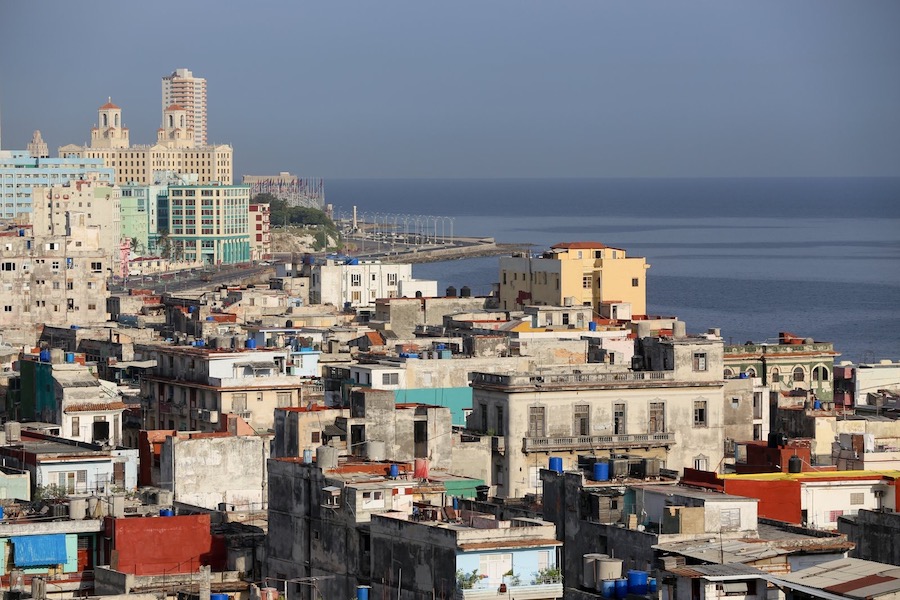
By MC Bell | gargoyle@flagler.edu
On March 4, the Trump administration officials will decide if they should pursue title III of the Helms-Burton Act, according to National Security Advisor John Bolton.
Title III is a part of the 1996 Helms-Burton Act that tightened the United States’ embargo on Cuba. If passed, the law will allow U.S. nationals to file law suits in U.S. courts against entities trafficking in their confiscated property in Cuba.
Alberto de la Cruz is the managing editor of Babalú Blog, an English language site that opposes the socialist government and covers a range of topics about Cuba.
Cruz believes pursuing Title III would be good and bad.
“It would be good because it gives justice and legal recourse, but bad because lawsuits are only allowing this the first 30 days and it’s being filed against those associated with the Castro dictatorship,” he said. “It’s not really going to get anywhere. It just opens up a huge Pandora’s box.”
The United States’ relationship with Cuba is more than political, according to Cruz.
“The truth of the matter is, in 1959, the Castro government took ownership of everything,” he said. “Ports, hotels, etc. The difference is that the Cuban government has never offered compensation. It’s a legal issue and a rule of law issue. You can’t pick and choose where you draw the line. If you’re not going to uphold the rule of law, then you can’t choose where you draw the line.”
There are many people living there now that only know Cuba as communist and Title III should be resolved between the Cuban exiles and Cubans on the island, he said. He also believes that sanctions are not the answer.
“The Cuban government would have to figure out a way to resolve the issue without having to kick everyone out of their house,” he said. “The vast majority of my parents’ generation would not move back to Cuba and retrieve their house. They have set roots here in the U.S.”
Cuban native Alberto Jones believes opening title III would be “a real human disaster.”
“Every government has seen it as extremely complex,” he said. “It’s going to wreak havoc and affect the course of the United States for decades because Title III allows people to sue for their properties. Can you imagine someone coming to your door, and saying ‘Get out, this is my house.’ That’s just some of the things that are at risk in Cuba today. That’s why most governments like Clinton, Bush, the other Bush, and Obama, everyone refrained because it’s opening a can of worms.”
The four previous administrations suspended title III the entire time they were in office. Trump could be different.
“Whatever your political views may be, I would say it would not be any other government than this based upon the thing that I’ve seen Trump do in two years,” Jones said. “I have no doubt that he can do it. I think Donald Trump is maybe the most irresponsible, amoral individual ever to enter that White House. That’s my assessment. Plus, he’s vindictive. You hear how he speaks about anyone in his government that walks away from him.”
Jones said Trump will end up creating the worst relationship between Cuba and the United States and what did not happen under the previous administration will happen under him.
“The only time that I think it was slightly worse was under George W. Bush for a period when he prohibited us from going just once every two years,” Jones said. “In the United States, it’s my wife, my daughter and myself, and a few cousins somewhere. In Cuba is my daughters, my grandson, my neighbors. Why do you put them in such an awkward position?”
Jones said many Cuban exiles’ property was lost from the revolution, but other Cubans have benefitted from the confiscation of property.
“The bulk of the people who the revolution hurt that left the country in the early ‘60s were white, rich, powerful government officials,” he said. “It’s very hard to find a black person in that group because we never earned anything in that country. We work for someone, we cut sugarcane, sweep floors, nannies, so therefore we have no reason to leave in 1959, ’60, ’61. In fact, we benefited from the revolution because the thing that they did was level the playing field. We benefited from the revolution in every aspect. One of the first things the government did was education for all. It is free from pre-K through university. In addition to that, you may have received that house that this person left. So now you no longer live in that shack. Now you move into Mr. Whomever’s house. Now, you have a job, before you never had a job. Why do people support the revolution? All the wealth.”


Be the first to comment on "Pursuing Title III may wreak havoc among foreign property in Cuba"